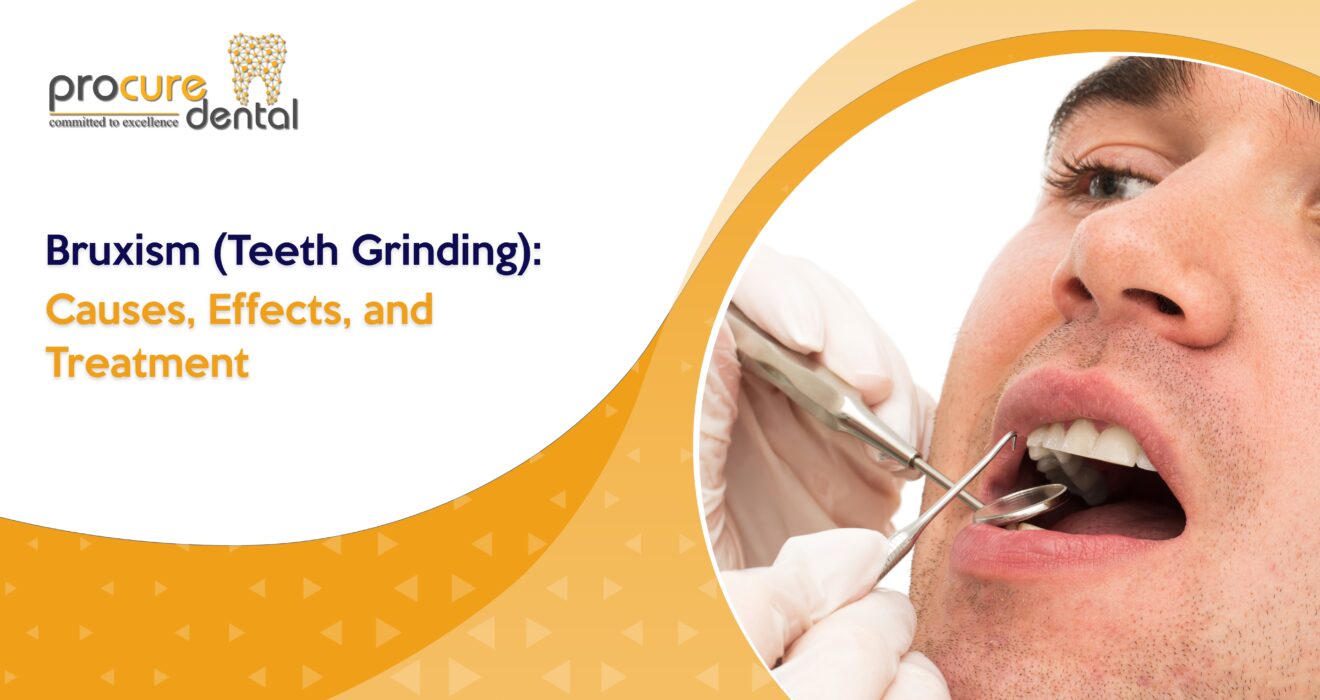Bruxism or Teeth Grinding: Causes, Effects, and Treatment
Do you often wake up with a sore jaw or headache? If so, you may be experiencing bruxism, a condition characterized by teeth grinding and clenching. Bruxism can have detrimental effects on your oral health and overall well-being if left untreated. In this blog, we will explore the causes, effects, and treatment options for bruxism, providing valuable insights into managing this common dental concern.
Understanding Bruxism
Bruxism is the involuntary habit of grinding or clenching your teeth, typically occurring during sleep but can also happen during waking hours. It affects people of all ages and can lead to a range of oral health issues if not addressed promptly.
Causes of Bruxism
- Stress and anxiety: Emotional stress and anxiety are often linked to bruxism, as they can manifest as teeth grinding during sleep.
- Malocclusion: Misaligned teeth or an improper bite can contribute to the development of bruxism.
- Sleep disorders: Sleep apnea and other sleep-related disorders can increase the likelihood of teeth grinding.
- Lifestyle factors: Certain lifestyle habits, such as excessive alcohol consumption or smoking, can exacerbate bruxism.
Effects of Bruxism
Bruxism can have several detrimental effects on your oral health and overall well-being, including:
- Tooth damage: Persistent grinding can lead to worn-down, fractured, or chipped teeth, which may require extensive dental work to repair.
- Jaw pain and discomfort: Excessive pressure from teeth grinding can cause jaw pain, headaches, earaches, and facial muscle soreness.
- TMJ disorders: Bruxism can contribute to temporomandibular joint (TMJ) disorders, causing jaw joint pain, clicking, or difficulty opening and closing the mouth.
- Sleep disturbances: Bruxism can disrupt your sleep patterns, leading to restless nights and daytime fatigue.
Treatment Options for Bruxism
- Mouthguards or splints: Custom-fitted dental appliances can help protect your teeth from the damaging effects of grinding and clenching.
- Stress management techniques: Incorporating stress-reducing activities into your daily routine, such as exercise, meditation, or counseling, can help alleviate bruxism caused by stress and anxiety.
- Correcting dental misalignment: Orthodontic treatments or dental procedures may be recommended to address bite issues that contribute to bruxism.
- Lifestyle modifications: Avoiding stimulants like caffeine and alcohol, practicing good sleep hygiene, and implementing relaxation techniques before bed can help reduce teeth grinding during sleep.
Prevention and Self-Care
- Avoid chewing on hard objects like pencils or ice, as it can exacerbate teeth grinding.
- Apply a warm compress to the jaw muscles to alleviate discomfort.
- Practice relaxation techniques, such as deep breathing or gentle jaw stretches, to help relax the jaw muscles.
Final Thought
Bruxism can significantly impact your oral health and overall quality of life. Identifying the causes and effects of bruxism is the first step towards finding an effective treatment plan. If you suspect you have bruxism, consult a dental professional who can provide a comprehensive evaluation and recommend the most suitable treatment options for your specific needs. Don’t let bruxism take a toll on your oral health and well-being—take action today!



